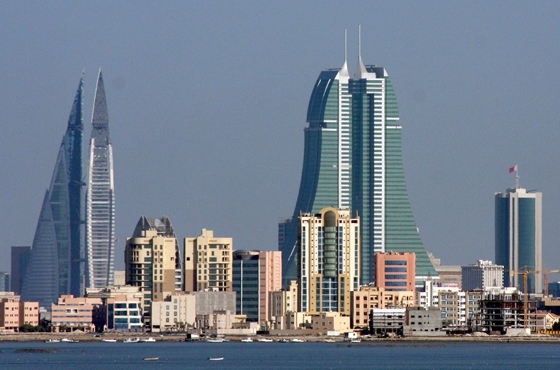Bahrain beat GDP growth expectations in 2013 and is poised to keep pace with its larger regional neighbors this year, according to a recent report from the country’s Economic Development Board (EDB).
In April the EDB reported 5.3% real GDP growth for 2013 – surpassing both its earlier predictions of 4.3% and the GCC average of 3.7%. While resumption of work at the Abu Saafah offshore field accounted for much of the strong growth in 2013, coupled with a busy infrastructure agenda and an increasingly confident financial sector, the Bahrain EDB is predicting that the non-oil sector will lead GDP growth of 3.5-4% this year.
All-round growth
Half of the kingdom’s GDP growth last year was attributed to the oil and gas sector, thanks to normalized output levels at the Abu Saafah offshore oilfield. But experts predict growth in the sector to cool slightly as production in that field comes down from an above-capacity spike at the end of 2013.
In the last quarter of the year, Abu Saafah was producing 161,043 barrels per day (bpd), above the annual average of 149,708 bpd, or 99.8% of capacity. According to the EDB, the field should remain at full-capacity production throughout 2014, barring a slight dip in May for scheduled maintenance. At the time of writing, there were no indications that maintenance at the Abu Saafah field was causing any delays or complications.
Meanwhile, the EDB has high hopes for economic growth outside the oil fields, noting in its April report that it expects the non-oil economy to “contribute virtually all of the increment in GDP in 2014”.
Expansionary Budget
The government has already spent $4.4 billion of the $10bn GCC Support Fund money it was given by the UAE, Kuwait, Saudi Arabia and Qatar in the wake of the Arab Spring protests in Bahrain. The spending is likely to greatly impact non-oil sector GDP growth.
According to a recent report from the Manama-based Securities & Investment Company (SICO), the new infrastructure projects should tempt lenders back into the construction sector, an area less popular with banks in 2013. Lending rates last year fell from a height of 5.29% in February to 3.78% in September but the SICO report, released in May, indicates construction lending rates could go as low as 2%.
The EDB points to the ratification of the long-delayed budget in mid-2013 as a means to open up government spending. Indeed, in the face of unclear budget expectations, year-on-year growth in the government services sector in 2013 slowed to 2.1% – a major drop from 12.1% in 2012 and 14.4% in 2011.
However, the IMF, among others, has expressed concern over the country’s expansionary budget, advising a gradual reduction in public subsidies. According to estimates of the current budget, passed in June of last year, the deficit is expected to reach BD914m ($2.42bn) in 2014. A delicate political climate has so far inhibited the government from reducing food and fuel subsidies.
Banking reform
While the IMF has cautioned Bahrain over budgetary practices, the fund has also declared the banking sector to be in healthy condition following its March visit to the country. In a recent statement, May Khamis of the IMF noted that Bahrain appeared to be unaffected by global market volatility and that the banking system’s capitalization is “high on average”. Capitalization rates average around 18% for retail banks and above 22% for wholesale banks, according to the IMF.
In May, Bahrain became the second country in the region, after Saudi Arabia, to clarify its interpretation of some of the Basel III requirements, the voluntary regulatory standards developed in response to the global financial crisis. The Central Bank announced that capital-boosting instruments, like subordinated debt, must include loss-absorbency features. The move is expected to encourage some activity in the banking sector that was previously avoided because of lack of regulatory direction, as well as help build overall investor confidence.
Overall, despite some regulatory uncertainty, the EDB reports that foreign direct investment was strong in 2013, rising 12% year-on-year to $114m. Major investors included Japanese logistics firm Kinetsu World Express and global health insurance company CIGNA. All told, the 2013 investments will create over 800 jobs over the next three years, says the EDB.
Oxford Business Group
17 June
























































